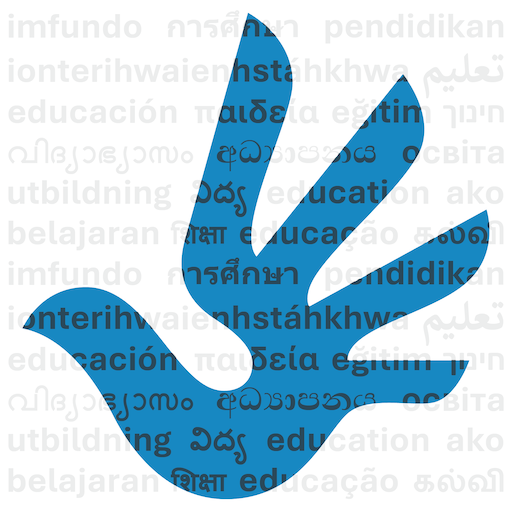This is a child-friendly* simplified version of the Declaration of Child Rights-Centric Education. The official declaration is written in formal, legal English, because that is how Human Rights instruments are written.
*Normally this would be titled a "Child-Friendly" version but we prefer to say "simplified" because there is no need to invoke age-based discrimination to provide information that is accessible and inclusive.
This version is offered by Riverstone Village in South Africa, a Founding Member of the RCE Network (also available in German):
Preamble
The way most schools work was created a long time ago when people thought of children as belonging to their parents or to the government, not as people with their own rights. Today, many schools still don’t focus enough on children’ rights, but children’ rights are very important and must be respected.
In 1989, The United Nations, the international body responsible to support countries to respect human rights, agreed that all children have rights. The treaty they signed was called the United Nations Convention on the Rights of the Child (UNCRC). These rights include being treated fairly, having a say, education, and being safe and cared for.
We can’t just respect some rights and ignore others, because they all go together. Schools must respect all children’s rights and never take them away. Schools should be safe, fair, and respectful, helping everyone learn to get along and live peacefully.
Every country must make sure every child can learn, no matter who they are or where they come from. Schools must always follow rules that respect children’s rights.
There are special documents that help make the UNCRC rights clear when people are unsure. These are called the General Comments, and one of the things they say is that education doesn’t just happen in schools—it happens everywhere, like at home and in the community. Education includes all the experiences that help children grow, find their talents, and live happy lives as part of their community. That’s why children’s rights must be protected wherever they learn. Families have an important job guiding children as they learn about and use their rights.
The UNCRC and General Comments say we can’t support children’s rights by making only small changes to education. Education needs to be redesigned to fully support their rights. Education should always protect and strengthen children’s rights, not hurt them. This means everything about education—what is taught, how learning happens, and where it takes place—must be safe, fair, and help children enjoy all their rights.
Declaration
For all of these reasons, we, the people signing below, now call on everyone responsible for respecting, protecting, and supporting children’s rights in all parts of education to do the following things:
- Respect Children’s Rights: Fully and completely recognize that children have their own important rights that cannot be taken away.
- Recognise All Education: Education is all of the experiences and learning that help children grow and develop. This includes learning at home, school, or anywhere else, and includes everything that helps children discover their talents, build their abilities, and live a happy and fulfilling life in society, both as individuals and with others.
- Make Necessary Changes to Education: Start making change after change to improve how education works until it always follows UNCRC human rights values and principles. This means rethinking and updating education until it respects and supports every right for every child.
- Make Really Sure that Enough Change Happens:
- Even When it’s Not Easy: Everyone will need to do more and more of what’s best for children's rights, even changing things that people have been used to doing for a long time.
- Don’t Leave Out Any Rights: The UNCRC and General Comments must be used to make sure that education is safe, kind, and respects every child’s right to learn and grow in ways that work well for them personally. The General Comments also explain that it is important to make sure that children can learn how to live in peace together, express themselves, have a say in decisions and be taken seriously, can be safe and free from violence, and more.
- Change Education Everywhere: Make changing education to fully respect rights a top priority in schools and other places that are especially meant for children’s education, whether these are run by governments or by anyone else.
- Rights Also Matter at Home: Families are also important supporters of children’s rights in education.
- Make Sure it is Real Change: It’s important to really make sure that every place where children learn is fair, safe, and respects children’s rights. We need to notice how things are going in schools, homes, and other places of education and keep thinking about what still needs to change next. Young people know best about their own learning and feelings, so they should help decide if things are going well, and adults need to listen and take them seriously. This way, education will be the best it can be for all children!
